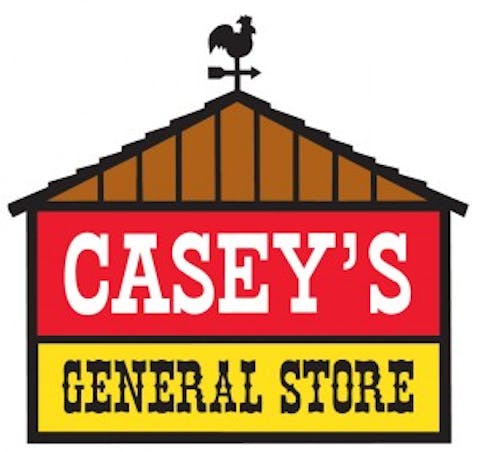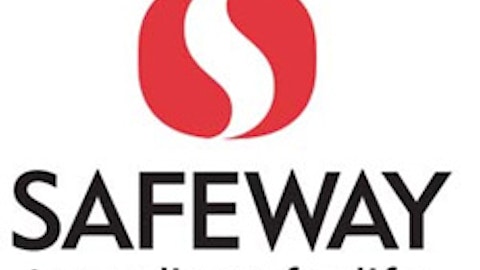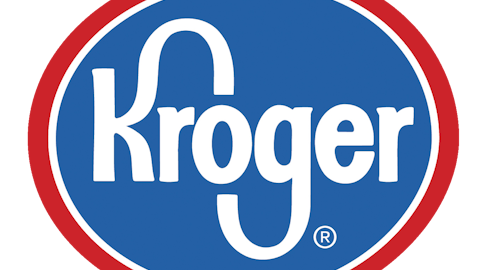World food retail market performance will grow at an estimated CAGR of 5.5% for the period of 2011-2016, a slight decline from 5.7% for the period 2007-2011. Grocery stores are facing stiff competition and price wars. Companies are battling these obstacles with strategies like expansion and store remodeling.
Three grocery stores are currently working on these strategies, which will improve their margins as well as profitability.

Strategic initiatives and improved margin
In the past two months, Casey’s General Stores, Inc. (NASDAQ:CASY) exceeded its target gasoline margin of $0.15 per gallon because of a recent surge in Renewable Identification Number, or RIN, value above $1. Casey buys gasoline and ethanol separately and then blends them. After blending, Casey’s General Stores, Inc. (NASDAQ:CASY) receives RIN that is a 38-character number assigned by the Environmental Protection Agency, or EPA, to each gallon of renewable fuel.
Under the Renewable Fuel Standard program, the EPA uses RIN to monitor the sale of fuel that should contain a minimum volume of ethanol. Casey’s General Stores, Inc. (NASDAQ:CASY) sells this RIN to obligated parties such as refineries. Flat gasoline demand and rising ethanol consumption targets surged RIN value. Therefore, the company’s gasoline margin will be $0.19 per gallon in the first quarter of fiscal year 2014.
Benefits from new stores, remodeling, and better margins will increase Casey’s General Stores, Inc. (NASDAQ:CASY) EPS to $3.90 in fiscal year 2014 from $2.86 in fiscal year 2013.
Sale of assets and mediocre free cash flow visibility
Last month Safeway Inc. (NYSE:SWY) announced the sale of its Canadian operations. It agreed to sell Canada Safeway Ltd., or CSL, to Sobeys for $5.64 billion in cash. Now it can focus more on its core operations in the U.S. CSL generated earnings of $260.71 million in fiscal year 2013. This sale will lower near-term earnings but will contribute to the growth of the core business. Safeway Inc. (NYSE:SWY) will invest some of these proceeds into its core business operations. Additionally, the company will likely pay down $2 billion of debt and will buy back some of its shares in order to improve shareholders’ value.
The company invested significantly in store remodeling in 2004, and additional remodeling is unnecessary for the next 10 years. Safeway Inc. (NYSE:SWY) spent $837 million in the U.S. in 2012, and allotted $900 million for 2013. However, reinvestment will be required to remodel its stores after such a long period. Safeway Inc. (NYSE:SWY) estimates spending will increase from its current level to maintain the quality of its 1,400 stores and to fight off competition due to entry of new stores and new competitive formats and technology. This will reflect in the company’s free cash flow; Safeway Inc. (NYSE:SWY)’s FCF will reduced to $517 million compared to $642 million last year.
Store expansion and improved margin
The Fresh Market Inc (NASDAQ:TFM) reported a 34.0% gross margin in 2012, an increase of around 4% in the last five years. Its contract with Burris logistics is scale based and provides lower per case cost as the volume levels grow. Store growth will generate lower sourcing costs with the increase in volume levels. Continued improvements in the inventory management system and processes will reduce the shrink rate to around 5% in next few years, which is around 8% currently. These factors will improve gross margins to 34.4% in 2013 and 34.6% in 2014.
Unit growth and margin improvement will drive EPS growth from $1.34 in 2012 to $1.60 in 2013 and $2.00 in 2014.
Conclusion
All three companies of these companies are using strategies like expansion, remodeling stores, or improving margins. Benefits of store remodeling and replacement along with increase in RIN value will increase Casey’s General Stores, Inc. (NASDAQ:CASY) free cash flow and gasoline margin. The Fresh Market Inc (NASDAQ:TFM) expects EPS growth because of its store development program and improving gross margin.
Therefore, I recommend buying both these stocks.
Safeway Inc. (NYSE:SWY) will offset spending and reduced FCF with the sale of its Canadian operations. Therefore, if you hold the stock, don’t dump it.
Shweta Dubey has no position in any stocks mentioned. The Motley Fool recommends The Fresh Market. Shweta is a member of The Motley Fool Blog Network — entries represent the personal opinion of the blogger and are not formally edited.
The article Two Grocery Companies to Buy, One to Avoid originally appeared on Fool.com is written by Shweta Dubey.
Copyright © 1995 – 2013 The Motley Fool, LLC. All rights reserved. The Motley Fool has a disclosure policy.




